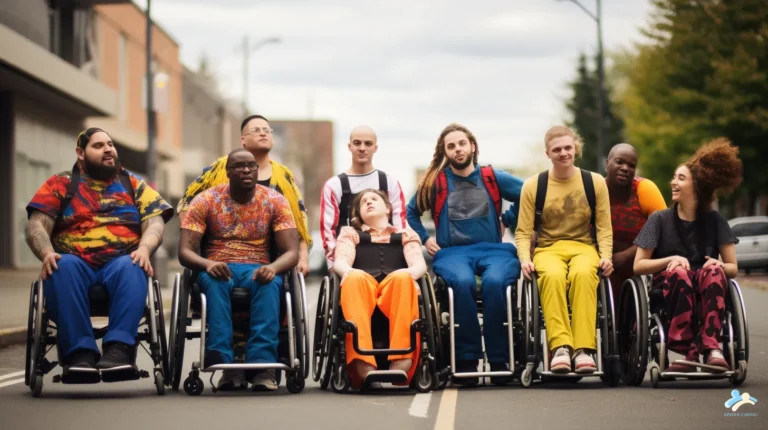Mental health is just as important as physical health, but it is often ignored — especially in our society. Many people silently suffer from anxiety and depression, not knowing where to turn for help. At National Disable Services (NDS), we understand how mental well-being plays a vital role in living a healthy and independent life, especially for people with disabilities.
In this blog, we’ll talk about what anxiety and depression are, why they matter, and simple ways to manage them.
What Is Anxiety and Depression?
Anxiety is when a person feels very nervous, worried, or fearful — even without any clear reason.
- Depression is when someone feels extremely sad, hopeless, or loses interest in life for a long time.
Both are common and treatable conditions, but they can make daily life very difficult if ignored.
Why Mental Health Is Important
Good mental health helps you:
✅ Feel confident
✅ Handle stress
✅ Stay productive
✅ Build strong relationships
✅ Take better care of your physical health
For people with disabilities, mental health challenges may arise due to isolation, discrimination, or feeling dependent on others — which makes support and awareness even more important.
Common Symptoms to Look Out For
If you or someone you know has the following symptoms, they may be experiencing anxiety or depression:
- Constant sadness or low mood
- Worrying too much
- Feeling tired all the time
- Loss of interest in favorite activities
- Difficulty sleeping or eating
- Feeling worthless or guilty
- Thoughts of self-harm or suicide
It’s important to remember: You are not alone, and help is available.
How to Cope with Anxiety and Depression
Here are 5 simple but effective ways to manage mental health:
1. Talk to Someone
Share your feelings with a friend, family member, or mental health counselor. Talking helps relieve emotional pressure and gives you support.
2. Practice Self-Care
Do small things every day that make you happy — such as listening to music, spending time in nature, reading, or taking a warm bath.
3. Stay Physically Active
Even light exercise like walking or stretching helps release chemicals in the brain that improve mood and reduce anxiety.
4. Maintain a Routine
Try to wake up, eat, and sleep at the same time every day. A simple routine gives your mind structure and stability.
5. Limit Negative Input
Avoid too much news, social media, or toxic people. Instead, focus on positive and uplifting content.
How NDS Supports Mental Health
At National Disable Services, we offer:
- Free and confidential mental health counseling
- Support groups where people can share experiences and heal together
- Workshops on emotional wellness and stress management
- Safe spaces to talk, heal, and grow
We are here to listen, support, and empower individuals — because your mental health matters.
Final Thoughts
Anxiety and depression are real, but they are also manageable with the right support. If you’re struggling, please know that you don’t have to go through it alone. Speak up. Reach out. Get help.
Together, we can create a society where everyone — with or without disabilities — has the right to mental well-being and emotional peace.
















